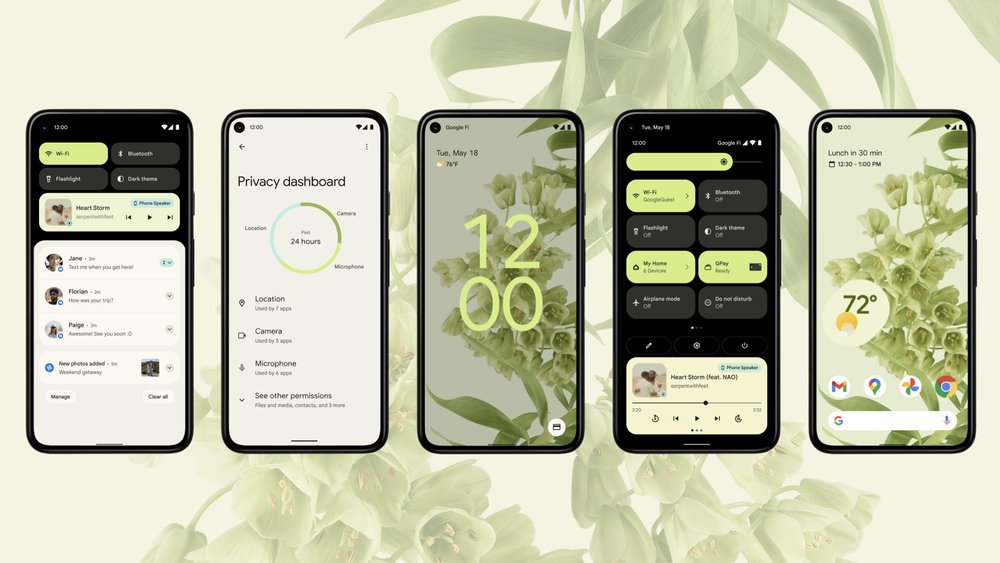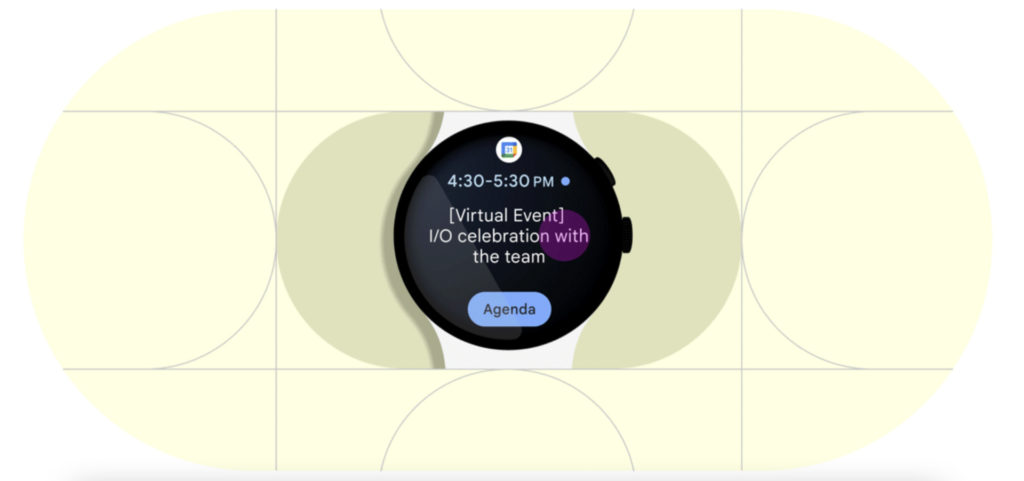Google I/O 2021, the company’s largest annual developer conference, just unwrapped a whole bunch of announcements at a virtual event. It is worth noting that Google skipped its I/O event last year due to the ongoing pandemic, and predictably there was a slew of announcements to catch up on at this year’s event. The tech giant unveiled the all-new Android 12 with radical design changes, interconnected workspaces, Android integrations, various new services powered by AI, and other updates. Like every major tech event happening globally, Google I/O 2021 was an entirely virtual event and was free for everyone to attend.
From all the announcements made at this year’s Google I/O event, we have compiled a list of all the major unveilings:
Going carbon-free
Google is one of the few companies that has been carbon-neutral since 2007 and is also the world’s largest corporate buyer of renewable energy. At Google I/O 2021, the company pledged to be carbon-free by 2030. If the company manages to achieve this, it will be the first major tech company in the world to achieve the feat.
Google also plans to help over 500 cities to reduce 1 gigaton of carbon emissions annually by 2030 and remove more carbon from the atmosphere with reforestation. The company is planning to deploy large-scale solar panels, wind turbines, and other clean sources of energy.
[tg_youtube video_id=”tPqdL6tLSBU”]
Android 12
As many speculated, Google announced Android 12 at I/O 2021. The company made several radical design changes to the Android as we know it and released Android 12 with the new Material You design language. Android 12 now offers far more color and customization options. It will allow users to modify the entire color scheme of the device without having to rely on any widgets or launchers.

Unlike every other public beta release that confines the beta update only to Google-powered Pixel devices, Android 12 is available for the public. It is made available for devices from 12 different leading smartphone makers across the globe. Apart from the design changes, Google also strengthened security and privacy in its newest Android OS — a critical feature for companies considering using Android phones as work-from-home devices. If you are interested in knowing more about all the major and interesting features of Android 12, stay tuned — we will have an entire article dedicated to Android 12 later this week.
Project Starline
Travel restrictions, remote work enforcements, and lockdowns have made it harder for workforces to collaborate and be productive.
Google announced that they have been working for several years on building a platform that allows users to video call someone and experience the call in a hyper-realistic 3D environment. Dubbed Project Starline, it is the tech giant’s latest project that focuses on using technology to create the feeling of being together with someone virtually, just as if they are in the same room. Project Starline aims at providing this realistic virtual experience by combining advances in hardware and software by leveraging technologies such as computer vision, machine learning, spatial audio, and real-time compression.

The company mentioned that they also started testing Project Starline internally at some of their office locations in the U.S. and will share more information about it later this year.
LaMDA
If you have been closely following Google and its announcements, it is no surprise that Google has a strong affinity for language. From building web content translators to using ML to get user intent based on their search patterns, Google has come a long way in technological advancements with respect to language.
At I/O 2021, Google CEO Sundar Pichai showed off the company’s newest innovation in the form of LaMDA. LaMDA is an AI-powered conversation technology that Google believes to be a game-changer by being a virtual conversationalist. The company showed off a pre-recorded video of a person communicating with LaMDA, who in the conversation was enacting with a paper plane. More information about this technology can be found here.
Smart Canvas
Google introduced Smart Canvas, a new collaboration tool from the company which brings major Google apps and services like Sheets, Docs, and Slides together for better efficiency and collaboration.
Google announced a bunch of new smart features to their lineup of apps and services and mentioned that these new features will be rolling out in the coming months. Some of the major features in Smart Canvas are Smart chips, templates, and checklists. Smart chips allow users to link other files, meetings, documents, and people. It works similar to an “@ mentions” feature. The addition of checklists, assisted writing, stronger integrations with other Google apps, and emoji reactions are some of the other major features Google plans to roll out in the coming months.
With the need for collaboration at an all-time high, Google is working on human connections through technology in the form of Smart Canvas.
[tg_youtube video_id=”SDBbFETGiA4″]
Developer updates
Google announced Flutter 2.2, the newest version of the company’s own open-source mobile application development UI toolkit at I/O 2021. This new version allows developers to monetize their apps with in-app purchases as well as ads. Google also launched new APIs and services for Flutter that allows developers to leverage several cloud services.
Google also announced that Firebase, a platform for developing mobile and web apps, is currently powering over 3 million apps. At I/O 2021, Google announced an all-new and improved Emulator suite for Firebase that now includes a storage emulator. Moreover, the company announced that the Firebase app distribution supports Android app bundles for streamlined testing. More information about the updates regarding Firebase can be found here.
Wear OS updates
Google and Samsung have announced their partnership by merging Wear OS and Tizen to redesign Android OS for smartwatches. Fitbit (which is owned by Google) is also set to develop a Wear OS app for this new collaboration. With Apple Watch being untouchable when it comes to smartwatches, this alliance from Google, Samsung, and Fitbit has the potential to revive the Android smartwatch segment. The collaboration will be focused on improving the features, bringing in more powerful chipsets and sensors for smartwatches for faster and more efficient performance. All new Samsung’s smartwatches will be powered by this new Wear OS and will be available for the public starting this fall.

Google I/O 2021: Final words
Apart from these major announcements, the company unveiled new and improved features to Google’s arsenal of apps and services including, Google Camera, new and improved AI-powered Google Search, Photos, and Maps. They also pitched in the all-new Android Integrations, which allows users to use their Android devices as a remote to control Android TV, Android Auto wireless, and digital car keys via NFC and Android phone. However, the company did not unveil the curtains from the highly anticipated new lineup of Pixel smartphones or the Pixel smartwatch.
Images: Google



